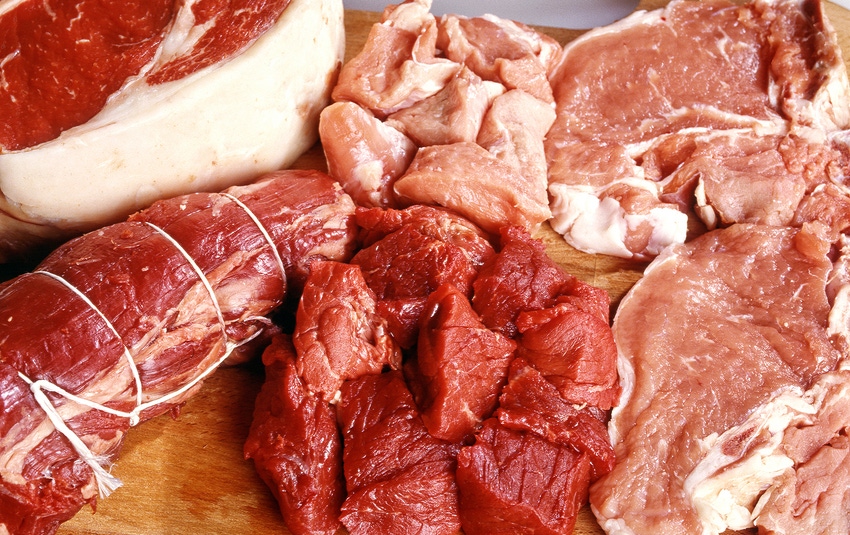Government scrambles to salvage global relationships in meat trade.

JBS S.A. announced last Thursday that it was suspending operations at 33 out of 36 beef slaughter plants in Brazil for three days after several countries announced bans on Brazilian meat. The bans resulted from a two-year investigation called “Operation Weak Flesh” that came to a head last week in a series of raids.
The raids that took place across several Brazilian states were reportedly the result of a probe into the alleged bribery of health inspectors by the meat companies. According to Reuters, the police said the investigation found evidence that meatpackers bribed inspectors and politicians to overlook unsanitary practices such as processing rotten meat and shipping exports with traces of salmonella.
“In the next week, the company will operate all its units with a reduction of 35% in production capacity,” JBS said in a statement.
Suspending the operations will allow JBS to adjust production in line with demand, the company said, but added that the Brazilian plants would resume production in the following week at about two-thirds capacity. JBS said it is focused on maintaining employment of its 125,000 workers in Brazil.
Brazil scrambling
“There are no problems with Brazilian meat," Brazil's Agriculture Minister Blairo Maggi said March 23 to Chinese press teams accompanying him on a visit to a meatpacking plant in the city of Rio Verde in Brazil's Goiás state. The Chinese journalists themselves made the request to visit the meatpacking plant's facilities and operations.
Since the probe was announced, Maggi has tried to provide the greatest amount of information to the press and authorities of countries that import Brazilian meat. “Acting with transparency is the best avenue at this time," the minister said, noting that this is also a direct determination of President Michel Temer.
The country's meat industry organizations, Brazilian National Association of Food Protein Producers and Brazilian Beef Exporters Assn., have downplayed the probe, saying only three plants were actually part of the corruption.
In addition to determining the automatic embargo of the plants mentioned in the investigations by not issuing their export licenses, Maggi is also working to clarify information that “has often been misreported.” The automatic embargo aims to prevent plants that have not been mentioned from also being affected.
On March 22, the Ministry of Agriculture, Livestock & Food Supply suspended the export licenses of 21 meatpacking plants targeted by Operation Weak Flesh. The suspension was reported to all countries that buy meat from the investigated companies. According to Maggi, the measure reinforces the “safety and robustness" of the Brazilian meat production chain and agricultural/livestock health protection system.
Maggi added that the Ministry has kept foreign government authorities informed on the operation in order to avoid total or indefinite embargoes. "We are giving importing markets the guarantee that there are no problems with the products shipped. We cannot be subject to a final embargo by other countries, because that would bring immediate and future losses," he said.
The minister also emphasized that the goal at the moment is to reassure domestic and foreign markets. "Our system detects everything. It is fully tracked," Maggi said. "Yesterday, for example, it noticed that there was a truck carrying goods to Chile. We then asked the plant to bring the vehicle back so as not to create problems with that country. We can pinpoint, for instance, the vessel and current offshore position of an individual container."
Brazil sends an average of 262,000 containers of meat to 160 importing countries every year, generating revenue equivalent to 15% of all Brazilian exports. These figures place Brazil as a global leader in exports of chicken, beef and pork.
China, Mexico, Canada, the European Union and several other countries have enacted partial or full bans on meat from Brazil.
The U.S. Department of Agriculture’s Food Safety & Inspection Service (FSIS) said last week that it plans to take additional steps to keep U.S. consumers safe. USDA said, to its knowledge, no tainted meat has entered the U.S., but additional inspections and testing will be implemented to ensure food safety.
"Keeping food safe for American families is our top priority,” said Mike Young, USDA acting deputy secretary. “FSIS has strengthened the existing safeguards that protect the American food supply as a precaution and is monitoring the Brazilian government's investigation closely.”
About the Author(s)
You May Also Like



